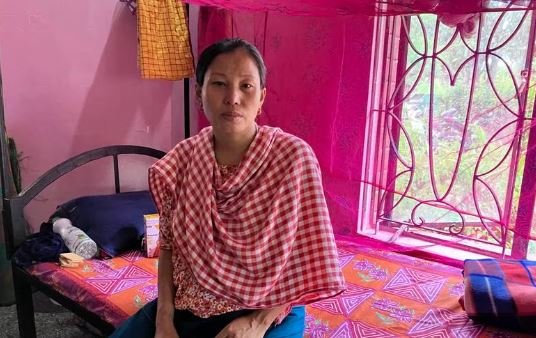Amidst the ongoing clashes between ethnic groups in Manipur, the health and well-being of pregnant women have been a matter of concern. However, Union health minister Mansukh Mandaviya’s recent update provided a glimmer of hope. Despite the challenging circumstances, essential antenatal care (ANC) has been extended to 319 pregnant women, with 19 of them categorized as high-risk pregnancies. This critical care has played a vital role in ensuring the health and safety of both the expectant mothers and their unborn children.
Over the course of the past two and a half months of ethnic groups clashes, the healthcare authorities have been diligently conducting regular check-ups in designated camps. These efforts have not only assisted in monitoring the health of pregnant women but have also led to the safe delivery of 139 babies within these tumultuous times. For those women facing critical conditions, the provision of prompt ambulance services has been instrumental in facilitating their transfer to nearby hospitals, where they could receive immediate medical attention and care.
The initial outbreak of regional discord had severely disrupted essential healthcare and social services in the affected areas. In response to this dire situation, the Union health ministry swiftly sprung into action. In May, six dedicated teams, each comprising four doctors, were deployed to the affected districts. Recognizing the urgent need for additional support, the authorities also added another medical team earlier this month. These well-equipped and skilled medical teams are now stationed in the relief camps, working tirelessly to deliver a comprehensive range of healthcare services to the residents. Their primary focus has been on ensuring the well-being of mothers and children, with particular attention given to lactating mothers and breastfeeding infants.
Acknowledging the profound impact that such conflicts can have on the mental health of those affected, the ministry has also taken strides to address the emotional well-being of the camp residents. By implementing the National Mental Health Program, they are extending support and care to those facing psychological distress in the wake of the upheaval.
Despite the adversities, the provision of essential antenatal care and comprehensive healthcare services in the relief camps stands as a testament to the government’s commitment to safeguarding the health of its citizens, even in the most challenging times. The dedication and efforts of the medical teams have brought hope and relief to pregnant women and their families amidst the uncertainties of the ongoing clashes. The ministry’s holistic approach, encompassing physical and mental health, showcases the importance of comprehensive care during times of crisis.
